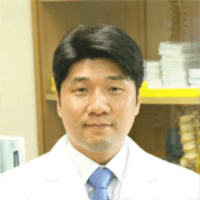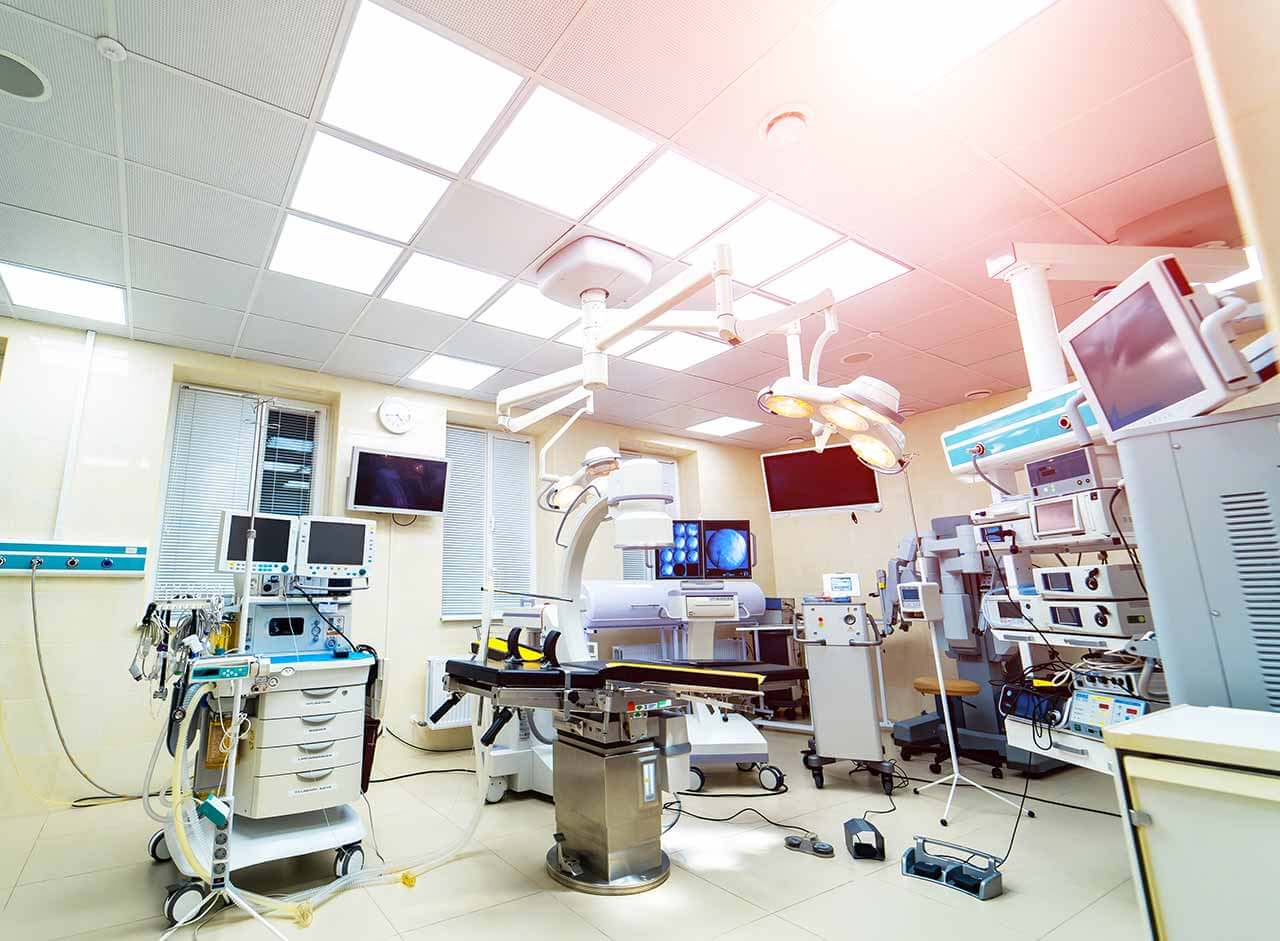
The program includes:
- Initial presentation in the clinic
- clinical history taking
- review of medical records
- physical examination
- laboratory tests:
- complete blood count
- general urine analysis
- biochemical blood test
- inflammation markers (CRP, ESR)
- blood coagulation analysis (aPTT, PT, INR)
- neurological examination
- CT/MRI scan
(if indicated clinically, additional cost is 550/800€) - biopsy with histological study
(if indicated clinically, stereotaxic biopsy 7000 €) - nursing services
- consultation of related specialists
- treatment by chief physician and all leading experts
- explanation of individual treatment plan
Required documents
- Medical records
- MRI/CT scan (not older than 3 months)
- Biopsy results (if available)
Service
You may also book:
 BookingHealth Price from:
BookingHealth Price from:
About the department
The Department of Spinal Surgery at the Wooridul Hospital Seoul offers the full range of conservative, minimally invasive and endoscopic treatment of spinal diseases. The surgeons of the department are the first-class specialists, they regularly undergo advanced training courses to keep pace with innovations in medicine. The Chief Physician of the department is Dr. med. Junseok Bae.
The specialists of the department mostly have to deal with such pathological conditions as spinal deformities, scoliosis, spondylosis, herniated intervertebral discs, osteochondrosis, radiculitis, spinal canal stenosis, etc.
In order to make an accurate diagnostics, the doctors of the department use the five-stage principle of diagnostics:
- General medical examination, determination of symptoms, X-ray examinations
- Magnetic resonance imaging for the examination of soft tissues, intervertebral discs, nerve endings, etc.
- Computed tomography for the examinations of the vertebrae, ligaments and spinal joints
- Spinal cord myelography
- Examination of the spinal nerve ending function
- Thermography
- Discography
- Electromyography
- 3D examination of the human movements
After the comprehensive diagnostics, the patient is prescribed appropriate conservative treatments (for example, drug therapy, physiotherapy, deep muscle stimulation, flexible spinal therapy, exercises on a special Centar device), and only if they are ineffective, surgical interventions can be performed. The surgeons in the department give preference to minimally invasive interventions, which are as safe as possible for the patient. The performance of operations with the help of a microscope helps to minimize the patient's pain, blood loss, reduce the risk of complications and the rehabilitation period. The department specializes in the use of such minimally invasive spinal surgery as percutaneous endoscopic cervical discectomy, percutaneous endoscopic lumbar discectomy, open laser-assisted lumbar discectomy, complete replacement of the intervertebral disc.
The service range of the department includes:
- Conservative therapy
- Drug therapy
- Injection therapy (blockades)
- Physiotherapy
- Therapeutic exercise
- Discoplasty
- Nucleoplasty
- Neuroplasty
- Annuloplasty
- Percutaneous endoscopic interventions in the cervical, thoracic and lumbar spine
- Open microsurgical spinal decompression on the cervical, thoracic and lumbar spine
- Spinal stabilization with the preservation of mobility
- Replacement of the discs of cervical and lumbar spine with the artificial ones
- Lumbar ligamentoplasty
- Intervertebral spacer installation
- Minimally invasive spinal fusion
- Radical correction of the spinal deformities
- Laser spine surgery
- Vertebroplasty and kyphoplasty
- Rehabilitation measures
- Other therapeutic options
Curriculum vitae
Education
- Fellow of the American Board of Minimally Invasive Spine Surgery (FABMISS).
- Internship, Department of Neurosurgery, Asan Medical Center, Seoul.
- Residency, Department of Neurosurgery, Asan Medical Center, Seoul.
- Internship, Department of Neurosurgery, Asan Medical Center, Seoul.
- Magistracy, Faculty of Medicine, University of Ulsan.
- Baccalaureate, Faculty of Medicine, Kyungpook National University.
Professional Career
- Chief Physician of the Wooridul Hospital Seoul.
- Head of the Pocheon Hospital Gyeonggi.
- Best Technical Innovation Award of the Wooridul Hospital (2011).
- Best Specialization Award of the Wooridul Hospital (2010).
- Member of the North American Spine Society (NASS).
- Member of Korean Neurosurgical Journal.
- Member of the Korean Spinal Neurosurgical Society (IMS).
- Member of the Korean Society of Interventional Muscle and Soft Tissue Stimulation Therapy.
Photo of the doctor: (c) Wooridul Hospital Seoul
About hospital
The Wooridul Hospital Seoul is a modern high-tech medical facility with a long tradition and the highest standards of medical care. The hospital is part of a network of medical facilities, the first of which was founded in Busan in 1982. The medical institution specializes in advanced diagnostics and effective treatment of the widest range of the spinal and joints diseases. Thanks to the outstanding results in this field, the hospital holds a leading position in the global medical market.
In 2008, the hospital was awarded the title of the "Best Hospital in the World" by the Medical Tourism Association, and in 2010 it received JCI Accreditation (Joint International Commission on the Accreditation of Medical Institutions).
The hospital is fitted out with state-of-the-art equipment, for example, CT, MRI, navigation computer systems, CyberKnife systems and many other medical facilities. The preference is always given to minimally invasive treatment, which helps to maintain healthy tissues, minimize complications, which may occur after treatment, and speeds up the process of postoperative recovery.
An important component of successful clinical practice is also the coordinated work of an interdisciplinary medical team, which consists of highly skilled neurosurgeons, orthopedic surgeons, therapists specializing in the treatment of internal diseases, rehabilitation specialists, general surgeons, etc. All the employees of the hospital are guided by the principle "The patient is always a priority", therefore the hospital has all the necessary conditions in order to provide the patient with the optimal medical care, taking into account his individual needs and wishes.
Photo: (c) depositphotos
Accommodation in hospital
Patients rooms
The patients of the Wooridul Hospital Seoul live in the comfortable rooms designed in bright colors. All rooms are equipped with an ensuite bathroom with a shower and a toilet, comfortable functional beds, a sofa, a refrigerator, a TV, air conditioning, etc. If desired, the accommodation in the enhanced-comfort rooms is available.
Meals and Menus
The patients at the hospital are offered a rich and tasty menu with European and Korean dishes. The patients from Arab countries are offered a halal menu. When cooking, both individual preferences and dietary restrictions are taken into account.
Further details
Standard rooms include:
Hotel
You may stay at the hotel during the outpatient program. Our employees will support you for selecting the best option.




